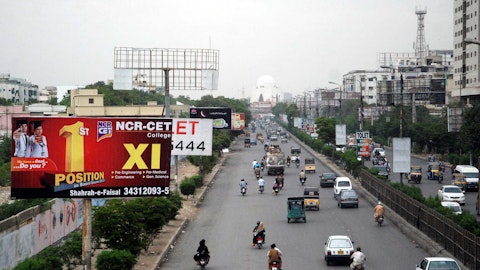1 – Iceland
Reason According to ChatGPT: Progressive policies and a strong emphasis on gender equality in the workplace
Iceland is the best nationality of women, according to chatGPT. The country has progressive policies, which have allowed it to promote gender equality in all aspects of life. So, if you were wondering what nationality treats women best, it is Iceland.
10 Worst Nationalities of Women According to ChatGPT
10 – Iraq
Reason According to ChatGPT: Ongoing conflicts affect the safety, access to education, and economic opportunities of women
Iraq has been in the grip of conflicts. Amid the conflicts, women’s equality takes a back seat. These conflicts also disproportionately affect women and children because they lack societal skills. It affects their safety and access to education. There are also little to no economic opportunities for women in the country.
9 – Nigeria
Reason According to ChatGPT: Gender-based violence, limited access to education, health disparities
Nigeria is one of the worst nationalities for women according to ChatGPT. There is a high prevalence of gender-based violence, in which women are mostly the victim, Gender based violence against women also frequently goes unnoticed by the local authorities. In addition, the country is one of the worst for trafficking of women. There are also evident health disparities between women and men in the country. Women also have very limited access to education.
8 – India
Reason According to ChatGPT: Gender-based violence, unequal access to education
Although India has made significant progress in the recent past, it is one of the worst nationalities of women according to ChatGPT. There is a high prevalence of gender-based violence against women. Traditional and regressive belief systems and cultures also prevent women from getting equal access to education, The country also has an evident gender pay gap.
7 – Pakistan
Reason According to ChatGPT: Gender-based violence, limited access to education, health disparities
Pakistan is also one of the worst nationalities for women according to ChatGPT. Gender-based violence is common in the country and often goes unnoticed. Many traditional practices in the rural areas inflict violence against women. In addition, there is very limited access to education for women in the country. It is worth noting that Pakistan is also one of the most illiterate countries in the world.
6 – Democratic Republic of the Congo
Reason According to ChatGPT: Gender-based violence, limited access to education, health disparities
Democratic Republic of Congo is one of the worst countries for women’s safety. Gender-based violence against women is the norm in the country and the legal system does little to prevent it. The country is frequently in the grip of violent conflicts which limits access to education for all, let alone women. There are also significant health disparities between women and men in the country.
5 – Syria
Reason According to ChatGPT: Ongoing conflicts leading to displacement, lack of education and healthcare
Syria is one of the worst countries to live in, which also means that it is one of the worst nationalities for women. Its ongoing conflicts, however, disproportionately affect women and children who are often displaced. There is also a lack of health care, and men get priority treatment in most cases. Women in the country also suffer from a lack of education.
4 – Iran
Reason According to ChatGPT: Legal and societal restrictions
Iran is one of the worst countries for gender equality. It is a theological country where the Shia Islamic Sharia Law is in place. The country places legal and societal restrictions on women who are not allowed to live their lives freely.
3 – Saudi Arabia
Reason According to ChatGPT: Gender segregated policies and restriction of women’s rights
Saudi Arabia has a history of gender-segregated policies, although much of it has changed in the recent past. For perspective, it was only very recently that women were allowed to drive in the country. The country offers very limited rights to women, and their participation in the workforce is almost nonexistent.





